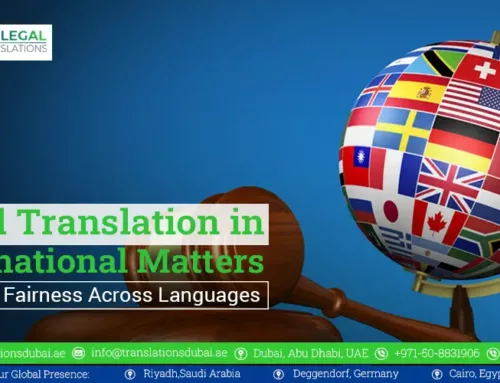Welcome to our blog post about Legal Translation! In today’s globalized world, the need for accurate and effective communication across language barriers has become increasingly important, especially in the fields of international law, international business, and diplomacy. Translation plays a crucial role in facilitating communication between different legal systems and cultures, ensuring that agreements, contracts, and documents are accurately understood and adhered to.
In this post, we will explore the significance of translation in these key areas and why it is essential for successful international interactions. So, let’s dive in and discover the fascinating world of translation together!
Understand Legal Translation
Legal and accurate translation is a complex and specialized field that involves translating legal documents and texts from one language to another. It requires not only a deep understanding of the source and target languages but also a thorough knowledge of legal concepts and terminology. Legal goes beyond simply translating words, as it also requires capturing the legal nuances and cultural differences that may impact the interpretation of legal documents.
This section will explore the importance of translation in various fields, such as international law, international business, and diplomacy, and provide insights into the challenges faced by legal translators.
Read More: Legal Translation Basics
The Critical Role of Legal Translation in International Law
Translation plays a critical role in the field of international law, ensuring effective communication and understanding between legal systems.
In international law, legal and accurate translation is essential for interpreting and applying international agreements, treaties, and legal texts. It enables lawyers, judges, and legal professionals to accurately comprehend the intricacies of different legal systems and make informed decisions.
Without accurate Legal Translation, misunderstandings and misinterpretations could arise, leading to legal disputes and complications in international relations, the importance of translation in international law cannot be overstated, as it is the key to facilitating successful legal interactions on a global scale.
Legal Translation for International Business
Translation plays a crucial role in international business, enabling effective communication and ensuring the accurate understanding of legal documents. In the realm of international commerce, translation is vital for contracts, agreements, and business correspondence. It ensures that business transactions are conducted smoothly across different legal systems and cultural contexts.
Legal and accurate translation also helps businesses navigate complex regulations and comply with international laws. Without accurate translation, misunderstandings and legal complications could arise, risking business relationships and success in the global market.
Legal Translation in Diplomacy
Translation plays a crucial role in the realm of diplomacy, ensuring effective communication between nations.
In diplomatic contexts, accurate and reliable translation is essential for the interpretation and understanding of international agreements, treaties, and diplomatic documents. It helps diplomats and government officials navigate legal complexities and cultural nuances, enabling them to engage in meaningful negotiations and collaborations.
Without proficient translation, misunderstandings and miscommunications could arise, leading to strained diplomatic relationships and potential conflicts. Thus, the significance of translation in diplomacy cannot be underestimated, as it promotes successful international interactions and fosters global cooperation.
Challenges in Legal and Accurate Translation
Translation poses numerous challenges due to the complexity of legal concepts and the need for accuracy:
- Translators must navigate the differences in legal terminology, language structures, and cultural nuances between languages.
- Ambiguities in source texts and the lack of equivalents in the target language can also create difficulties.
- Additionally, legal translators must stay up-to-date with the constantly evolving legal systems and terminology in different countries.
Overcoming these challenges requires extensive knowledge, research, and attention to detail to ensure precise and effective translations.
Tips to Improve Translation Accuracy for Global Success
To ensure accurate and effective translation, here are some tips to enhance your skills and achieve global success:
- Firstly, stay updated with the latest legal terminology and developments in different countries.
- Conduct thorough research to understand the cultural and linguistic nuances that may impact the translation of legal documents.
- Secondly, pay attention to detail and precision when translating legal texts, ensuring that the intended meaning is accurately conveyed.
- Collaborating with legal experts and engaging in continuous learning and professional development can also help refine your translation skills.
Remember, accuracy is paramount in translation for successful international interactions.






